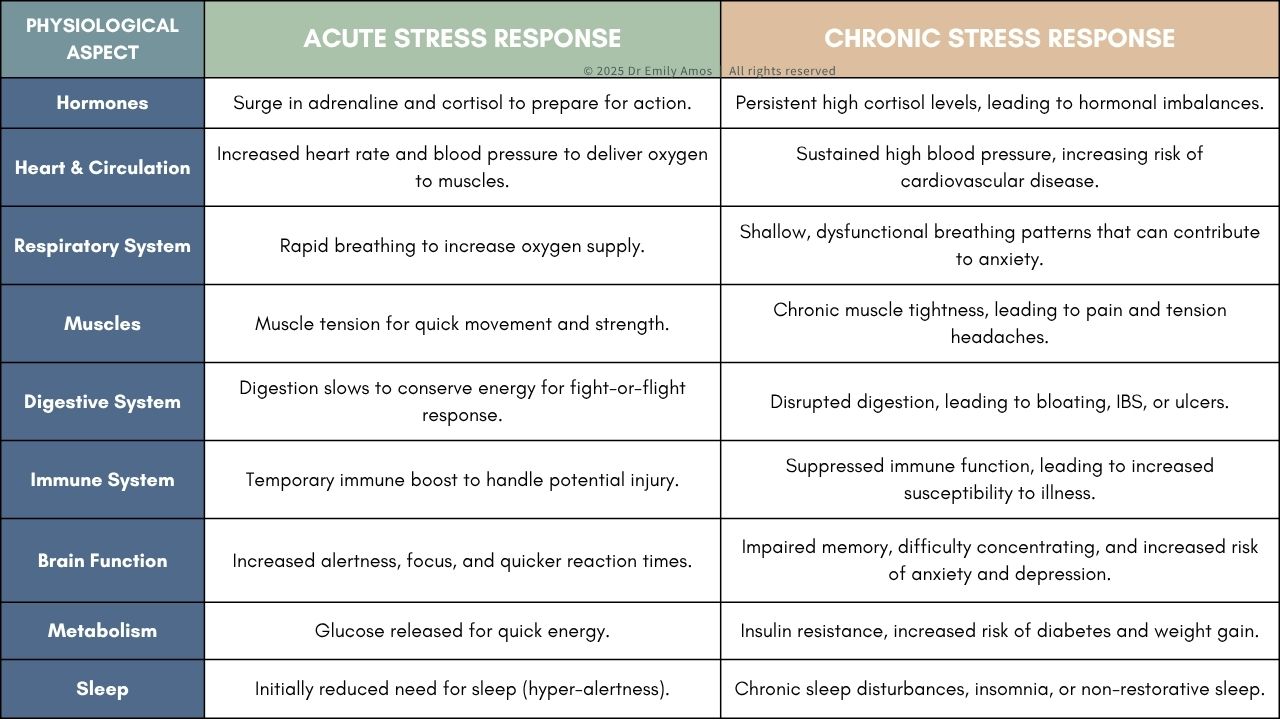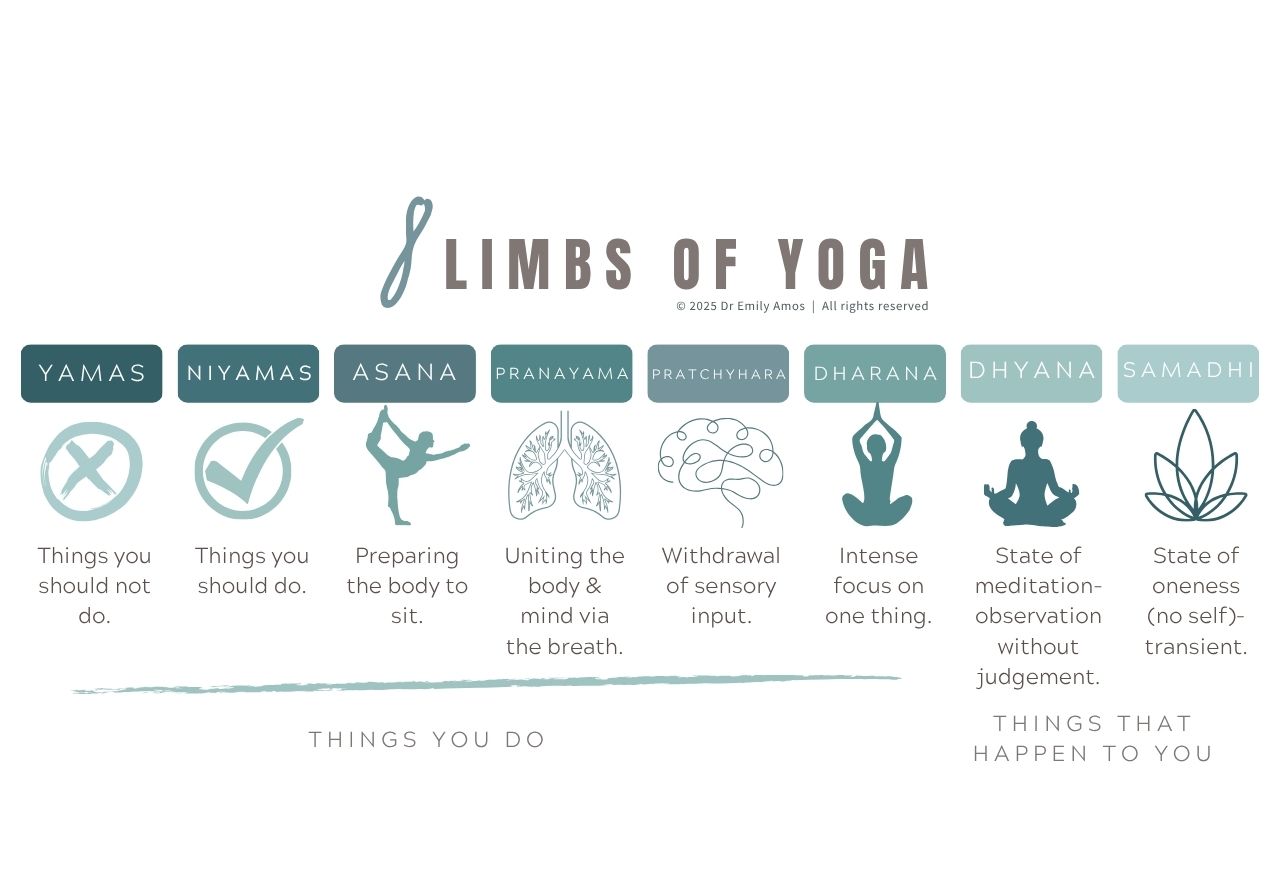Interoception, yoga & stress management
Jun 30, 2025
As a mindfulness, stress, and lifestyle medicine expert, as well as a qualified GP, registered yoga teacher, and meditation teacher, I’ve seen firsthand how easily we can become disconnected from our bodies. In our modern, fast-paced world, we’re often conditioned, consciously or unconsciously, to override our body’s signals. We drink coffee when we’re tired, push through pain, and ignore hunger, thirst, or the need to rest. Over time, this disconnection from our somatic experience can leave us feeling lost, overwhelmed, and unsure of what we’re truly feeling, both physically and emotionally.
When Something Feels 'Wrong' But Isn’t
I would see this time and time again in my consult room, where patients would come in very worried that something was wrong with them, when in fact, their bodies were just giving them a signal that they needed to slow down and rest. It's a common human affliction that we would rather think there was something 'wrong' that could be fixed so we can get 'back to normal', instead of the answer being as simple (and complex) as that we need to slow down, eat well, move mindfully, limit screen time and caffeine, invest time and energy into the rich social and emotional connections in our lives and practice mindfulness to help manage stress.
When we are disconnected from our interoceptive awareness, our internal cues can feel foreign or even alarming. A racing heart, tight chest, or fatigue might be misinterpreted as signs of illness or danger, when in reality they are the body's way of saying, "I need care." This misinterpretation often stems from the fact that we have been taught to look outside of ourselves for answers, rather than inward. Medicalising normal responses to stress or fatigue can give us a sense of control, but it often distances us further from the root cause.
Relearning to interpret these bodily messages accurately requires curiosity and compassion. It means noticing when we feel off, pausing to ask what might be happening in our body, and offering it the support it needs. Over time, this builds a more accurate and trusting relationship between our body and mind.
What Is Interoception?
This ability to tune into our internal bodily sensations is called interoception. It refers to the awareness of the internal state of our body, subtle cues like the beat of our heart, the flutter of anxiety in our stomach, or the ache of fatigue in our muscles. These signals give us valuable information about our physical and emotional state. They help us regulate not only bodily functions like hunger and sleep, but also our mood, decision-making, and resilience.
When we lose touch with interoception, we can feel confused or overwhelmed by what’s happening inside us. This disconnection can make it difficult to identify our emotions or bodily needs. For example, someone who is interoceptively disconnected might not recognise they are anxious until they experience a panic attack, or not realise they are hungry until they feel lightheaded or irritable. Over time, this lack of awareness can contribute to emotional dysregulation, burnout, or chronic health issues.
Rebuilding interoception means learning to notice and interpret these internal signals again, gently and without judgment. Like learning a new language, it requires consistent practice, patience, and a willingness to listen deeply. The more we practice, the more fluent we become in understanding the language of our body. This kind of inner listening is at the heart of self-care and emotional wellbeing.
The Impact of Stress on Our Body
Chronic stress is a key example. It doesn't just affect our thoughts. It manifests in the body through muscle tension, inflammation, and increased sensitivity to pain. When we're stressed and disconnected from our bodies, we become more susceptible to conditions like hyperalgesia, where pain is perceived more intensely. Our nervous system remains on high alert, interpreting even minor bodily sensations as potential threats.

Why Reconnecting Can Feel Uncomfortable at First
Ironically, as we begin to reconnect with our bodies through mindfulness, breath work, or gentle movement, discomfort can temporarily increase. This is a natural part of the healing process. A brain accustomed to tuning out these signals may become hyper-vigilant, overanalysing each sensation. We might notice every flutter, ache, or gurgle and interpret it as something being wrong.
Building Interoception Gently and Gradually
The path to restoring interoception is gradual and requires patience. This skill cannot be forced. It must be cultivated gently over time. Practices such as body scan meditations, mindful walking, and daily check-ins with our bodily state can help rebuild this vital connection.
How Yoga Deepens Interoception
Yoga offers a particularly powerful modality for enhancing interoception. By uniting body, mind, and breath, yoga fosters deep awareness of internal experience. While many associate yoga primarily with physical postures (asana), asana is only one of the eight limbs of yoga. The full yogic system includes ethical principles (yamas and niyamas), breath control (pranayama), sense withdrawal (pratyahara), concentration (dharana), meditation (dhyana), and ultimately, union (samadhi). This comprehensive framework is designed to deepen our relationship with ourselves, enhance somatic awareness, and cultivate integration between physical and emotional experiences.

Yoga is not merely a form of exercise. It is a holistic philosophy and lifestyle that supports a more embodied and conscious way of living. It helps bridge the gap between body and mind, guiding us gently toward a state of inner coherence and wholeness.
Coming Home to Ourselves
Reconnecting with our somatic experience isn’t just about reducing pain or managing stress. It’s about coming home to ourselves. It means learning to trust our body’s wisdom, responding with compassion rather than fear, and anchoring ourselves in the present moment. When we are attuned to our inner world, we are better equipped to face the external world with clarity, resilience, and grace.
Ready to reconnect with your body and rediscover calm?
If this resonated with you and you’re curious about working together, I offer compassionate, evidence-based support that integrates mindfulness, medicine, and movement. Click here to learn more about working with me.

Stay connected with news and updates!
Join the mailing list to receive the latest blogs, news and updates.
Don't worry, your information will not be shared.
We hate SPAM. We will never sell your information, for any reason.

